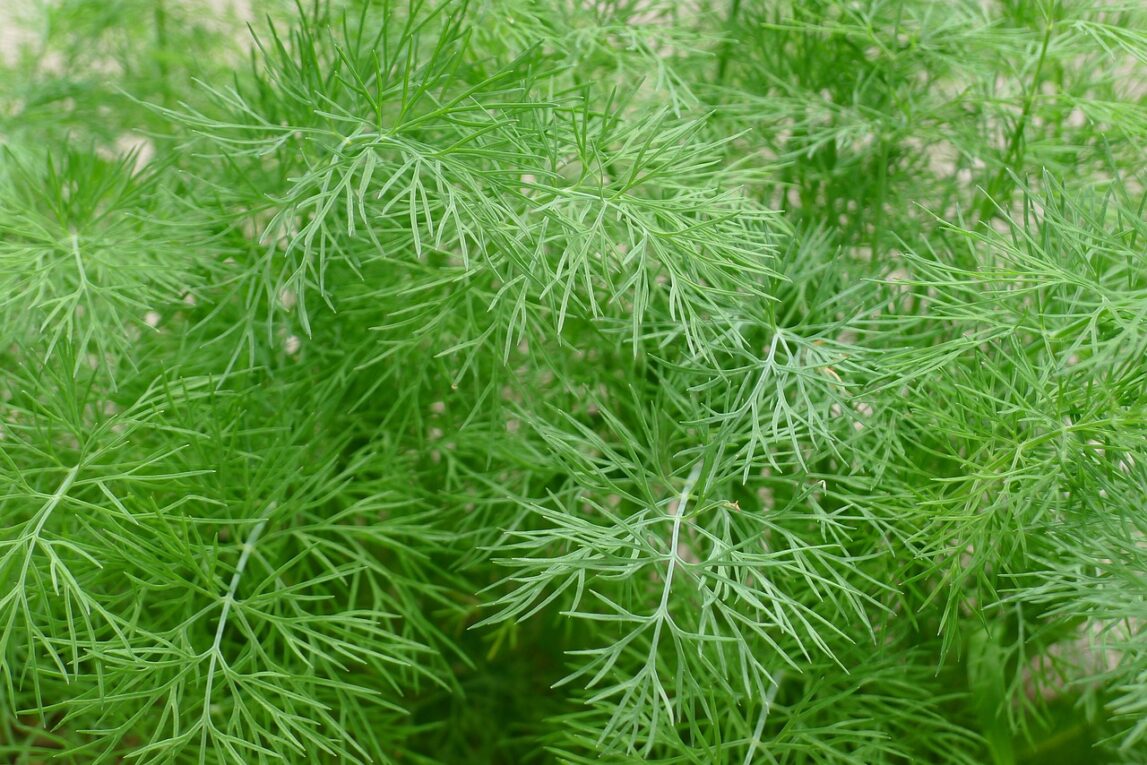Dill (Anethum graveolens) is a culinary herb belonging to the Apiaceae family, which also includes parsley, celery and carrots. It is native to southwestern Asia and the Mediterranean region but is now cultivated worldwide for its aromatic leaves and seeds. Dill is known for its feathery, delicate leaves and its distinctive flavor, which is reminiscent of both anise and celery.
History of Dill
Dill has been known as a herb that has the ability to provide a high amount of health benefits. With connections in history as far back as the ancient Egyptian society, this herb has provided relief for certain body ailments while also being a proponent towards warding off immense diseases.
Health Benefits of Dill
Below we explore a few of the ways that Dill that can assist us in our every day lives:
Dill can Help with Heartburn
Dill has been known to stimulate the lining of the esophagus and assist with removal of acid that normally causes the burning associated with heartburn. It does not actually rid the tube of the stomach acid that comes up but rather invigorates the muscles to work a bit harder to ingest the agitating acid back into the stomach.
Dill for Insomnia
Dill provides a healthy alternative towards relieving the body and the mind of insomnia. Certain flavonoids and vitamins that are abundant within the herb assist with speeding up the production of hormones within the body and, in turn, provide a relaxing and calming feeling.
Dill for Stomach Ailments
Dill is well known for containing an immense amount of dietary fiber and certain flavonoids that have bactericidal tendencies. Combine this with dill also being a key source of minerals, such as magnesium, and you have a herb that can naturally assist you with the pain and discomfort that comes with stomach ailments and diarrhoea.
Dill to Inhibit Cancer Cells
Cancer is one of the leading causes of death in today’s society. Most cancer victims will attest that when it comes to herbal supplements, Dill is high on their list in regards to its ability to ward off the spread of the disease. Dill is known to have high amounts of monoterpenes which have been documented and shown to have properties associated with attacking and limiting the growth of cancer cells within the body.
Dill for Strong Bones & Teeth
Growing up in today’s society, we have always been told to drink milk to build stronger bones and have healthier teeth. This consumption of milk revolves around the amount of calcium found within it. Dill also contains high amounts of calcium and is therefore considered a fantastic herbal supplement for helping strengthen the durability of bones in the human body.
Dill for Cold & Flu Remedies
We have all experienced symptoms of the common cold, such as a runny nose and a phlegmy cough. Dill can assist in reducing the amount of time a cold lingers within the body.
Dill possesses several properties that may offer some relief from cold symptoms:
Antimicrobial Properties: Dill contains compounds with antimicrobial properties, including flavonoids and monoterpenes. These compounds may help combat viral or bacterial infections that contribute to colds.
Expectorant Effects: Dill has traditionally been used as an expectorant, helping to loosen mucus and facilitate its expulsion from the respiratory tract. This action may help alleviate chest congestion and cough associated with colds.
Anti-inflammatory Effects: Some components of dill, such as flavonoids and volatile oils, exhibit anti-inflammatory properties. Inflammation in the respiratory tract can contribute to cold symptoms like sore throat and nasal congestion. Dill’s anti-inflammatory effects may help reduce these symptoms.
Antioxidant Activity: Dill contains antioxidants, such as vitamin C and flavonoids, which can help support the immune system and reduce oxidative stress caused by viral infections.
Relaxant Properties: Dill has been traditionally used as a natural relaxant and may help soothe irritated throat tissues and ease coughing.
How to Use Dill for Cold Relief
To use dill for cold relief, you can incorporate it into your diet by adding fresh dill to soups, salads, or teas. Dill tea, made by steeping fresh or dried dill leaves in hot water, may help soothe sore throats and ease congestion. Additionally, inhaling the steam from dill-infused hot water may provide temporary relief from nasal congestion.
If you have a cold or respiratory infection, it’s also crucial to stay hydrated and get plenty of rest,
Dill can Help with Bad Breath
Components found within the structure of the dill herb have been known to cure bad breath. Dill seeds can be chewed in similar fashion to gum and breath mints, and provide a healthy alternative for fresh clean breath that will not play a part in destroying the integrity of your teeth.
Dill may help with bad breath (halitosis) through several mechanisms, primarily due to its natural properties and compounds:
Antibacterial Action: Dill contains certain compounds with antibacterial properties, such as flavonoids and monoterpenes. These compounds may help combat oral bacteria that contribute to bad breath by inhibiting their growth and reducing the odor they produce.
Neutralizing Odors: The aromatic compounds present in dill, such as terpenes and volatile oils, have a pleasant scent that can help mask or neutralize foul odors in the mouth, including those associated with bad breath.
Stimulating Saliva Production: Chewing on dill leaves or seeds can stimulate saliva production. Saliva acts as a natural mouthwash, helping to wash away food particles, bacteria, and dead cells that can contribute to bad breath. Additionally, saliva contains enzymes that help break down food particles and neutralize acids in the mouth.
Digestive Aid: Dill has been traditionally used to support digestion and alleviate gastrointestinal issues. By promoting healthy digestion, dill may help reduce the occurrence of bad breath caused by digestive problems or indigestion.
Refreshing Flavor: Dill has a fresh, herbaceous flavor with hints of citrus and anise. Incorporating dill into meals or chewing on fresh dill leaves can impart a refreshing taste and aroma to the mouth, which may help combat bad breath temporarily.
To harness the potential benefits of dill for bad breath, you can try the following:
Chew on fresh dill leaves or seeds after meals to stimulate saliva production and freshen your breath.
Include dill in your diet by adding it to salads, sauces, soups, or dips to enjoy its flavor and potential breath-freshening effects.
Prepare dill-infused water or tea to rinse your mouth and throat, which may help reduce bacteria and neutralize odors.
Use dill as a natural garnish or seasoning for dishes to enhance their flavor and aroma while potentially aiding in breath freshness.
While dill may offer some relief from bad breath, it’s also essential to practice good oral hygiene habits, such as regular brushing, flossing, and tongue cleaning, to maintain oral health and prevent halitosis.
Dill Essential Oil
Essential oil can also be extracted from the seeds and leaves/stems, which collectively are known as Dill Weed. This essential oil has a wide variety of uses including: easing stomach conditions, reducing nervousness, aiding bronchial & respiratory health, to support the pancreas in reducing glucose and normalising insulin, which is obviously important for diabetics. Dill essential oil can be applied directly to the skin or inhaled.
Shopping
| Visit the new SHOPPING page for a wide selection of great products! |
How to Take Dill
Dill can be consumed in a variety of different ways. It can be used as a seasoning in food dishes, where it is described as having a sweet, citrus taste. Fresh or dried Dill can also be made into a tea.
As well as being a culinary ingredients, Dill supplements and essential oil can be found within most herbal stores and are provided with directions on the amounts that can be taken on a daily basis.
Always take care when taking herbs and Read Our Disclaimer.
Dill Herb Notes / Side Effects
Side effects from the consumption of Dill are very rare. If the herb is consumed in high levels, there is a possibility that the skin can become extra sensitive to light and a rash may occur.
People with epilepsy should NOT use Dill Essential Oil.



Leave a Reply